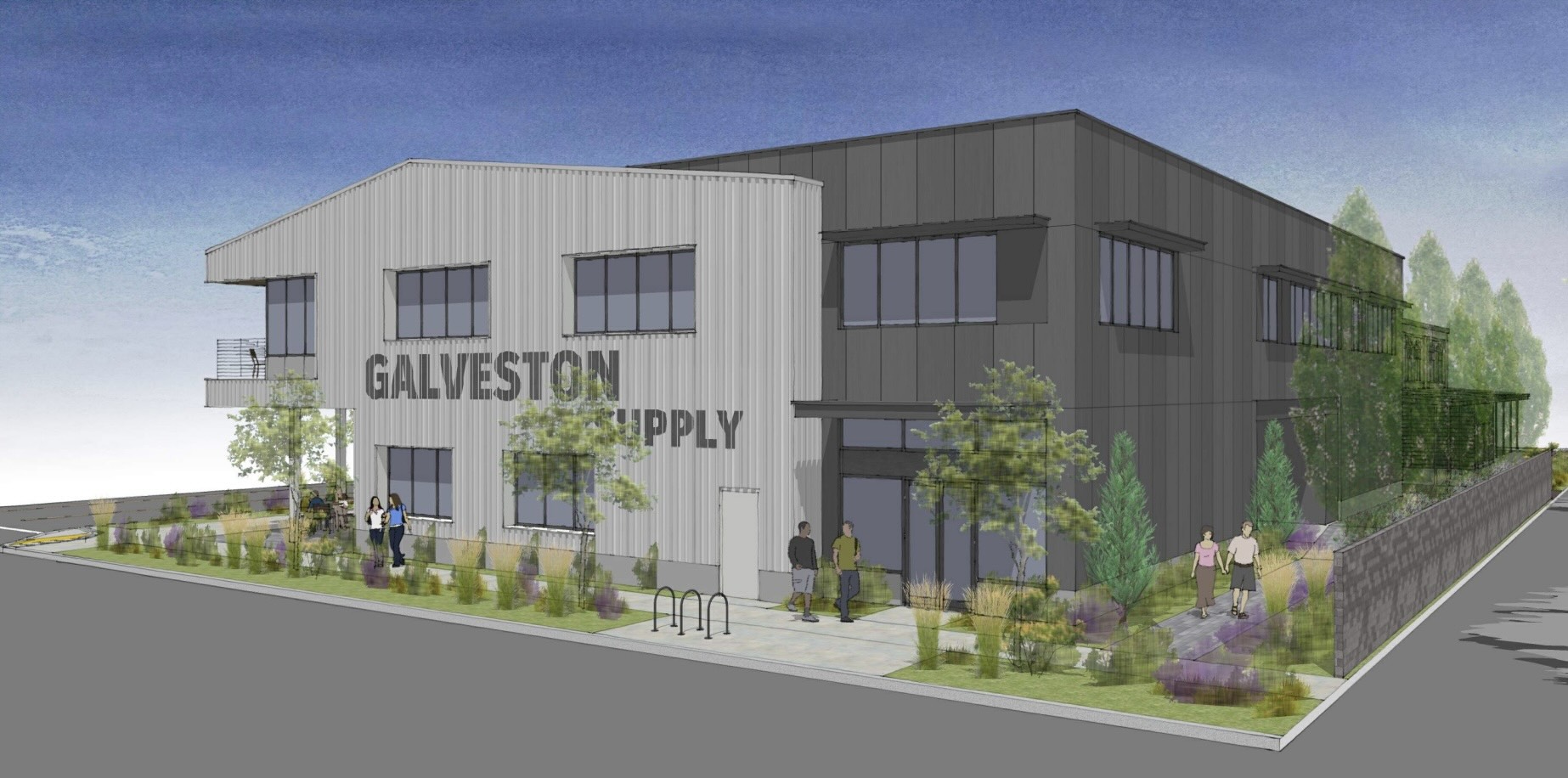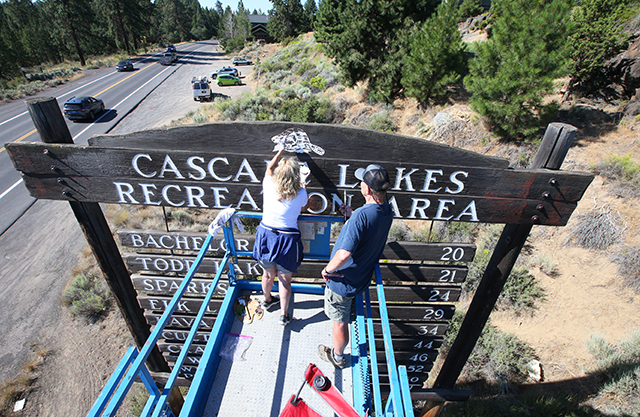Shareable e-bikes will return to Bend streets for good this year
Published 6:45 am Wednesday, April 16, 2025
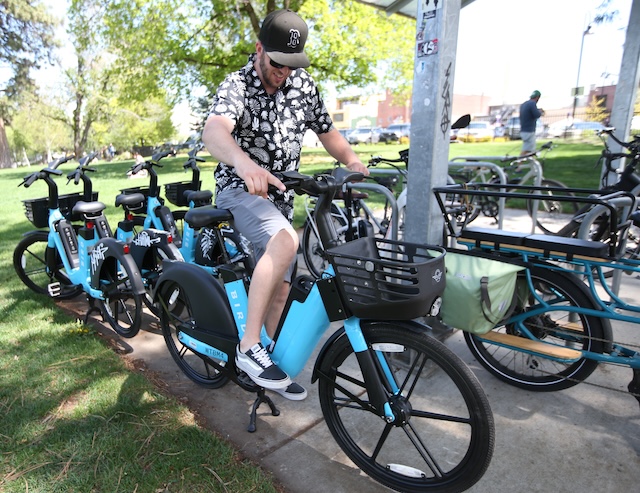
- Garrett Frazier of Bend, tests out the sizing of a BIRD electric bike in Drake Park near downtown Bend Wednesday afternoon. 5-17-23 Photo by Andy Tullis/The Bulletin
A new batch of shareable pedal assist e-bikes will hit the streets of Bend in 2025, this time for good.
Residents and visitors of Bend won’t be riding the bright blue bicycles that have dotted the city since 2022, but the Bend City Council feels a two-year pilot program was successful enough to make “micromobility” a mainstay.
The council is set to approve a change to city code Wednesday evening that would allow a permanent bikeshare program in Bend, setting guidelines for another non-car transportation alternative in the growing city. The city hopes to have the program up and running sometime this summer.
Trending
The fleet of 300 bikes that were under contract for the two-year pilot period are locked in a warehouse in Bend, ready to be shipped away. The city’s new permanent program will allow between 100 and 500 bikes to be deployed across Bend, said Tobias Marx, the city’s parking manager and supervisor of the bikeshare program.
Bird, the company that provided the blue bikes, has been pulling out of smaller-sized cities across the country, and told Bend it will no longer operate in the city, Marx said. The city will issue a request for proposals for a new vendor, who will pay the city for the right to run its bikeshare business in Bend.
The model for the new program will largely remain the same: Bikes are stationed at convenient points near the center of town, where people can activate them through a cell phone app, pay a fee to ride to where they need to go, and drop the bike in another designated location.
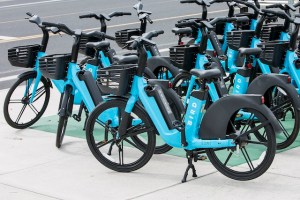
ORIG 06/08/22 A cluster of Bird bikes parked along Century Drive in Bend on Wednesday, June 8, 2022.
The goal is to provide bicycles to a larger number of people, with hopes that some of them will use that option instead of a car, reducing traffic congestion and providing active transportation, Marx said.
Lessons learned
The new bikeshare program will piggyback on lessons learned from the pilot program, which launched in 2022 and concluded in December, providing a wealth of data on how the bikes were being used.
Trending
One trend is clear: overall use of the bikes declined as the pilot program went on, with rides dropping from above 25,000 in the first year to below 15,000 in 2024. In 2023, there were 218 bikes available to use at any given time, but fewer than 100 the following year.
Marx said the decline in the program was largely due to inconsistencies with the local fleet manager that Bird worked with to run the program on the streets and keep bikes operational.
Meanwhile, the city received hundreds of complaints during the program’s first year, mostly to do with bikes abandoned in public or blocking sidewalks.
But for Marx, an important success story is that the number of complaints the city received about the blue bikes also steadily declined, from 250 in the first year to 29 in the final year. He attributes the decline to a more sophisticated tracking system allowing the city to see where each bike was located, how long it had been there, its battery level and whether or not it was usable. The city developed new compliance policies to prompt vendors to pick up bikes that hadn’t moved for longer than a few days.
Marx said the city has already renewed its contract to continue using the monitoring tool.
During the city council’s last work session on micromobility in October, councilor Ariel Méndez said he would be interested in increasing penalties for users who fail to leave the bikes at designated locations.
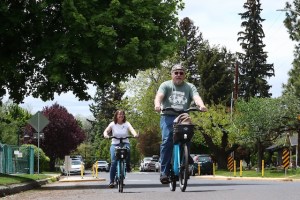
ORIG 06/09/22 Dave Harris and his wife Eileen Harris ride down Harmon Boulevard on Bird bikes while out touring the westside of Bend during a visit from Randle, Wash., on Thursday, June 9, 2022.
Despite a push toward a wider range of micromobility devices in cities like scooters, cargo bikes and adaptable bikes, city councilors said in October they felt the city is not yet ready for devices other than pedal-assist e-bikes.
“I would like to stick with bikes, at least for now,” Mayor Melanie Kebler said.
Connecting trips
Advocates see a hopeful future for the new program.
“The numbers are very promising to actually turn this into a permanent program,” said Brian Potwin, executive director of Commute Options, a nonprofit focused on alternative transportation. During the pilot program, the nonprofit helped educate the public on how to use the shared bikes. “I’m happy to hear the city council is going to move that forward. It’s a really positive option for our town, our community.”
Potwin said micromobility can provide the missing link for people who need to travel short distances to reach other transportation services, like public transit. According to Marx, the majority of trips during the pilot were under 2 miles and provided a connection between downtown and other destinations.
The city wants to add new designated parking zones, and encourage new groups of riders by placing bikes in different areas of the city. Bikeshare parking could integrate with new mobility hubs in Bend, an initiative of Cascades East Transit to facilitate connections between alternative types of travel.



